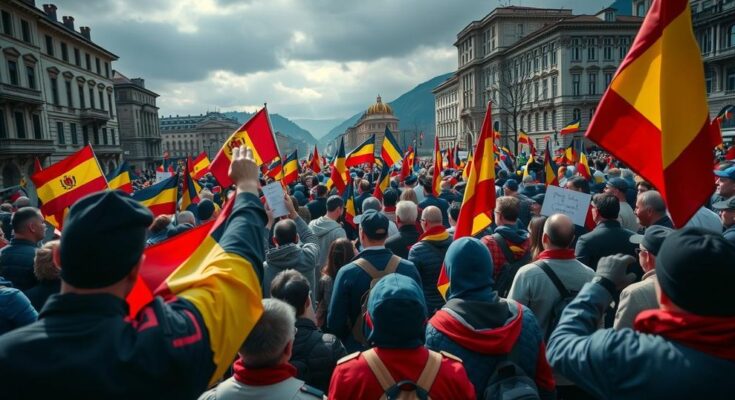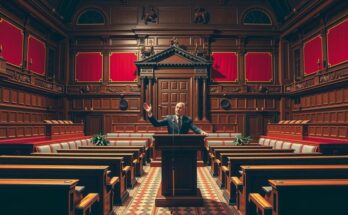Romania is entering elections amid rising nationalist sentiments, with Prime Minister Marcel Ciolacu of the Social Democratic Party leading polls. President Klaus Iohannis’s decade of passive leadership has contributed to this shift, allowing figures like nationalist George Simion of AUR and progressive Elena Lasconi of USR to gain traction. The elections could define Romania’s political future, especially concerning its commitments to the EU and domestic reforms.
Romania has been increasingly sidelined in European political discussions in recent years, despite its significant population size and strategic location as a key EU and NATO member. Notably, Romania shares the longest border with Ukraine among EU countries and hosts crucial US and NATO military operations. This geopolitical context is made even more pressing given the ongoing military threats posed by Russian drones, prompting the Romanian government to establish air raid shelters due to mounting security concerns.
However, unlike other regional players such as Poland and the Baltic states, Romania remains largely passive in international discourse regarding Russia’s aggression and support for Ukraine. President Klaus Iohannis has been at the helm for ten years, maintaining a low profile and failing to assert himself as an impactful leader, even as Romania approaches a critical election period.
As the nation prepares for a presidential election followed by parliamentary votes, Iohannis’s inability to run for reelection presents an opportunity for change amid rising nationalist sentiments. Prime Minister Marcel Ciolacu of the Social Democratic Party (PSD) is currently the front-runner, poised to gain a significant electoral advantage despite the party’s historical associations with corruption and right-wing populism intertwining with leftist rhetoric.
In stark contrast, George Simion leads the nationalist Alliance for the Unity of Romanians (AUR), campaigning on platforms reflecting anti-European sentiments, drawing comparisons to figures like Donald Trump. Simion has become notorious for provocative stances and alleged ties to Russian interests, positioning him as a prominent influencer among Romanian nationalists.
Elena Lasconi, head of the progressive Save Romania Union (USR), trails closely behind Simion, reflecting the evolving political landscape characterized by competing factions representing tradition and modern ideology. The upcoming runoff election may witness contrasting visions for Romania, drawing lines between clarity and reform as the nation grapples with internal divisions.
Recent polls reveal that populist and nationalist parties may secure record-breaking results in both presidential and parliamentary elections, leading to concerns about the future political direction of Romania, particularly regarding European integration and necessary judicial reforms.
The article discusses the current political climate in Romania as it approaches a series of elections, highlighting the country’s geopolitical significance and the shift towards nationalist and populist movements in recent years. It emphasizes the challenges posed by President Klaus Iohannis’s passive leadership and the prominence of key political figures like Marcel Ciolacu, George Simion, and Elena Lasconi in shaping Romania’s future. The context is framed by Romania’s strategic position in the EU, its security concerns related to Russia, and a historical backdrop of political corruption and reform struggles in the post-communist era.
In conclusion, Romania is at a crossroads as it enters a pivotal electoral season marked by the rise of nationalist sentiments and the push for reform amidst a backdrop of security challenges and political inertia. The potential outcomes of these elections may redefine Romania’s political landscape, either consolidating power within established parties or opening avenues for emerging nationalist voices. As the country navigates these complexities, the future of its democratic integrity and relationship with the EU remains uncertain, underscoring the need for vigilant civil engagement and political accountability.
Original Source: www.dw.com




